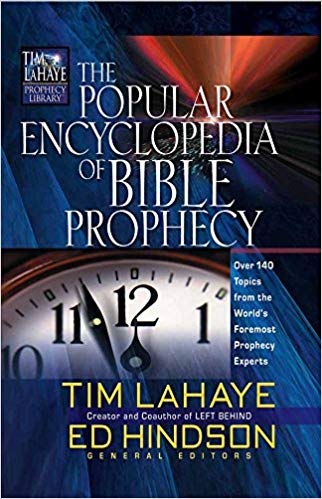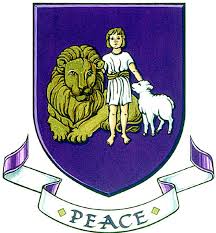ESCHATOLOGY OF ACTS Part I

THE POPULAR ENCYCLOPEDIA OF BIBLE PROPHECY
ESCHATOLOGY OF ACTS Part I
WHEN WILL GOD’S KINGDOM COME?
The book of Acts is a pivotal book in the New Testament. It records the transition from the Old Testament and the Gospels to the epistles, from a focus on Israel as God’s chosen nation to the church—people whom God
has chosen from all nations.
WHEN WILL GOD’S KINGDOM COME?
Acts 1:6-7 reveals that the apostles are expecting Jesus to fulfill the many prophecies of the Old Testament by establishing His kingdom on earth. Here they are anticipating neither heaven nor the church. Their words are
definitive: “Lord, will you at this time restore the kingdom to Israel?” The word “restore” (Greek, apokathistano¯ ) suggests four things:
- The kingdom to which they are referring is that which Israel had at one time possessed. Israel became God’s kingdom when they came out of Egypt as a nation (Exodus 19:6), and God was their King (1 Samuel 8:6-7; 12:12; Judges 8:23; Isaiah 43:15; Hosea 13:9-11).
- This kingdom did not now exist at the time of this question by the disciples.
- This kingdom will again exist with the nation of Israel.
- This kingdom is the same kingdom that had been established with Israel, for “restore” means to bring back that which formerly existed.
Jesus mildly rebuked His disciples for their question, but He did not rebuke them for still anticipating the restoration of the earthly kingdom that God had established with the nation of Israel. He only rebuked them for making Israel’s kingdom their present and primary
concern. Christ’s concern for that time was the establishment of His church (Acts 1:8). His admonition to the disciples that it is not for them to know the times or seasons (verse 7) may also be a warning for us not to speculate and theorize too much about future things that God has not chosen to reveal.
THE ASCENSION AND SECOND COMING
OF JESUS CHRIST
The ascension of Jesus to the Father in heaven is significantly different from what had been occurring during the 40 days between His resurrection and ascension (Acts 1:9-11). On the former occasions He had instantly appeared and disappeared (Luke 24:31) and then reappeared on a later occasion.
What happens here is different and final— their eyes behold His gradual ascension until a cloud obscures Him from their sight. This cloud may symbolize the shekinah glory and presence of God seen in the Old Testament (Exodus 40:34) and manifested on the Mount of Transfiguration (Matthew 17:5). While the apostles are entranced in the event, two “men”
appear on the scene. That they are angels is
evident by several facts.
- Their white clothing fits that of angelic appearances (Matthew 28:3; John 20:12).
- Their message fits that of angelic announcements (Matthew 28:5-7).
- Angels are often described as men (Acts 10:3,30; Revelation 21:17).
- Even the use of the rare pluperfect verb (pareiste¯keisan—“stood”) suggests a dramatic event (see Harrison, 41). These two angels assure the apostles that Jesus will return in the same manner as He has
just ascended. - He ascended visibly; He will return visibly (see Revelation 1:7).
- He ascended bodily; He will return bodily to this very place—Mt. Olivet (Zechariah 14:4).
- He ascended in the cloud of glory; He will return in the cloud of glory
(Matthew 24:30; Mark 13:26). Jesus’ return has not yet happened and
will not happen until the time when the Great Tribulation has come upon Israel and the whole earth (Matthew 24:29-30).
THE FULFILLMENT OF THE PROPHET JOEL
Peter seems to be saying in Acts 2:17-21 that Pentecost is the fulfillment of Joel’s prophecy concerning the last days (Joel 2:28-32). But Joel quite clearly relates these events to the time of the Great Tribulation, for Joel, immediately after 2:32, states, “For behold, in those days and at that time…” and then goes on to describe the time of the Great Tribulation (3:9-16) and the kingdom of God on earth (3:18-21). So can Peter be seeing the fulfillment
of Joel 2 on the Day of Pentecost? No, nor can he imagine its fulfillment. He has not seen the Spirit poured out on all flesh. When he preached this, he had just seen the Spirit poured out on only 120 people (Acts 1:15). But this is enough to convince him that this is the beginning, the first phase, of that fulfillment (Bruce, p. 61).
THE RETURN OF JESUS AND RESTORATION
OF ALL THINGS
If someone imagines that Peter was confused and spiritually dull when he asked Jesus about the restoration of the kingdom to Israel in Acts 1:6 prior to Pentecost and the indwelling presence of the Holy Spirit, then one can expect that after Pentecost, Peter’s understanding should be much clearer. Yet in Acts 3:19-26, Peter’s understanding of God’s kingdom with Israel remains unchanged. Peter says that Israel needs to repent and to turn to Jesus so that God may send Jesus back from heaven in order to bring the times of restoration and refreshing, the times proclaimed by all the Old Testament prophets (verse 21). The Greek noun translated “restoration”
here is from the same root as the verb used in the apostles’ question in Acts 1:6 concerning God restoring His kingdom to Israel at that time. Peter rightly believes that God will restore His kingdom with Israel when Jesus literally returns from heaven to this earth (Matthew 25:31-32; Revelation 19:11–20:6) and that the nation of Israel must first repent (see Romans 11, especially verses 25-27; Zechariah 12:10-14; 13:8-9). Peter mentions two important points of eschatology in this sermon. On the positive side, Jesus
will return and restore all that God had promised and Israel had lost. And on the negative side, those who do not hear and heed Jesus will be completely cut off from these millennial blessings (Fernando, p. 140).

